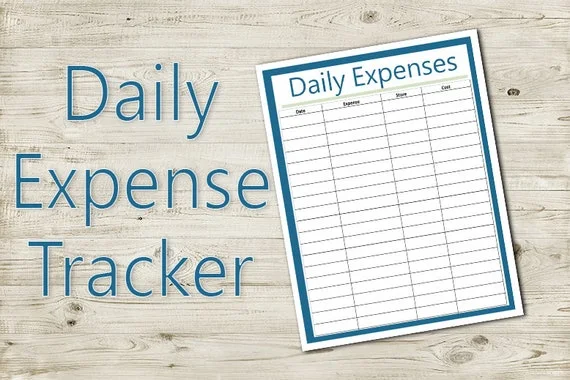7 Simple Steps to Manage Daily Expenses: The Results Will Surprise You!
Managing daily expenses might seem like a daunting task, especially for Gen Z and millennials who are navigating the complexities of modern life. But guess what? It doesn’t have to be. With a little planning and discipline, you can take control of your spending without feeling like you’re depriving yourself of life’s little pleasures. Let’s dive into seven simple steps that will not only help you manage your daily expenses but also leave you pleasantly surprised by the results.
1. Start with a Budget
Creating a budget might sound like something only accountants or finance majors do, but it's actually the foundation of good financial management. Imagine it as a roadmap guiding your money. Begin by monitoring your income and expenses over the course of a month to get a clear picture of where your money is going. Once you have that data, categorize your spending into essentials (like rent, groceries, and utilities) and non-essentials (like dining out, streaming services, and impulse buys).
Pro Tip: Use budgeting apps like Mint or YNAB (You Need A Budget) to automate this process and make tracking easier.
2. Set Daily Spending Limits
Once you’ve got your budget in place, the next step is to set daily spending limits. This doesn’t mean you have to go all Scrooge and penny-pinch every dollar. Instead, it’s about setting a reasonable amount that you can spend each day on non-essential items without derailing your budget. If you know you have $20 to spend on whatever you like, you’ll be less tempted to splurge on things you don’t need.
Pro Tip: Divide your monthly allowance for non-essentials by the number of days in the month to get your daily spending limit.
3. Use Cash or a Debit Card
Credit cards can be dangerous if not managed properly, especially with the temptation of buy-now-pay-later schemes. To avoid racking up debt, consider using cash or a debit card for your daily expenses. This way, you’re only spending money you actually have, which makes it easier to stick to your budget.
Pro Tip: If you prefer using cards, try setting up automatic notifications from your bank app that alert you every time a transaction is made. It helps keep you aware of your spending in real-time.
4. Plan Your Meals
Eating out is one of the biggest budget-busters for young people. It’s easy to justify grabbing a coffee or ordering takeout, but these costs add up quickly. Planning your meals for the week can help you save a significant amount of money. Not only will you avoid the temptation of last-minute takeout, but you’ll also have more control over what you’re eating, which is a win for both your wallet and your health.
Pro Tip: Consider meal prepping on Sundays so you have meals ready to go throughout the week. Also, don’t forget to take advantage of discounts at local grocery stores or use coupons to save even more.
5. Embrace the Power of 'No'
This may be the toughest step, but it's also the most crucial. Learning to say ‘no’ to unnecessary purchases is crucial for managing your daily expenses. Do you really need that new gadget, or are you buying it because it’s on sale? Before making a purchase, ask yourself if it’s something you genuinely need or if it’s just a passing desire.
Pro Tip: Try the 24-hour rule: if you see something you want to buy, wait 24 hours before purchasing it. Often, the desire will pass, and you’ll realize you don’t need it after all.
6. Take Advantage of Technology
There’s an app for everything these days, and managing your finances is no exception. Take advantage of technology to help you stay on top of your spending. From budgeting apps to cashback programs, there are plenty of tools out there designed to help you save money. Apps like Rakuten and Honey automatically find coupons or cashback offers when you shop online, making it easier to stay within your budget.
Pro Tip: Set up reminders on your phone for bill payments and savings contributions. This helps you avoid late fees and ensures that you’re consistently putting money aside.
7. Review and Adjust Regularly
Managing your daily expenses isn’t a one-and-done task; it requires regular review and adjustment. At the end of each week or month, take some time to review your spending habits. Did you stick to your budget? If not, where did you overspend? Use this information to adjust your budget and spending limits as needed. The more you practice, the more skilled you'll become at managing your money.
Pro Tip: Celebrate small wins! If you’ve managed to stay within your budget for the week, treat yourself to something small that doesn’t break the bank. Positive reinforcement can keep you motivated and on track.
Final Thoughts
Managing your daily expenses doesn’t have to be a chore. By following these seven simple steps, you can take control of your finances without feeling restricted. The key is to be mindful of your spending, set realistic limits, and review your progress regularly. Over time, you’ll find that managing your money becomes second nature, and the results will be both surprising and rewarding. Remember, it’s not about depriving yourself of life’s pleasures—it’s about making sure you’re spending your money in ways that truly matter to you.






